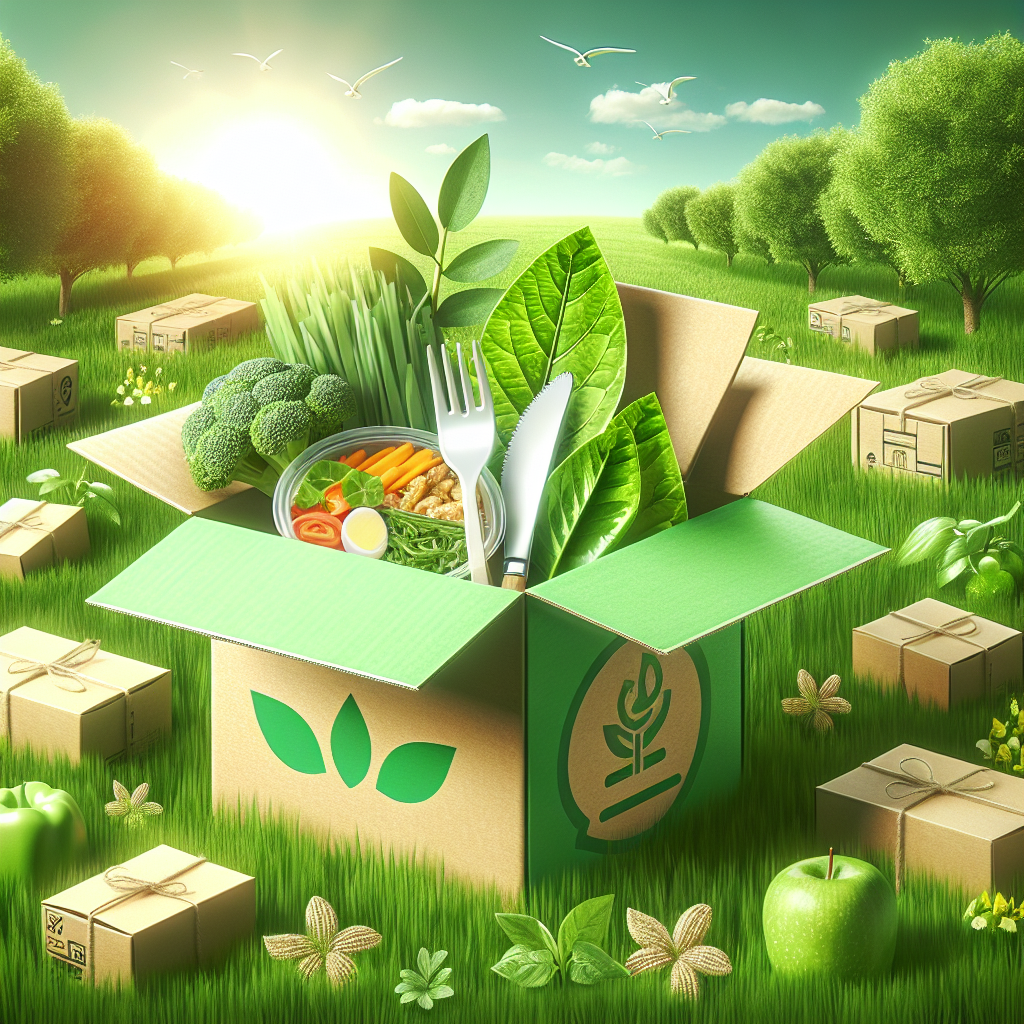In today’s fast-paced world, convenience often comes at the expense of sustainability. However, as consumer consciousness grows regarding environmental issues, meal delivery services are stepping up to the plate. They are rethinking packaging solutions and making significant strides towards sustainability. In this article, we’ll explore how these services are defining greener choices and why they matter.
The Rise of Meal Delivery Services
Meal delivery services have rapidly grown in popularity, offering time-strapped individuals a convenient way to enjoy nutritious meals without the hassle of grocery shopping and cooking. But how do these services balance convenience with environmental responsibility? The answer lies mainly in their packaging choices.
Understanding Sustainable Packaging
What is Sustainable Packaging?
Sustainable packaging is designed to have a minimal environmental impact. It is typically made from renewable resources, is recyclable or compostable, and reduces waste. This is crucial when considering the substantial waste generated by single-use plastics.
Why Sustainable Packaging Matters
In a world where plastic pollution has reached alarming levels, brands are feeling the pressure to adopt greener practices. According to a report by the United Nations, about 300 million tons of plastic are produced each year, 50% of which is single-use. Meal delivery services are finding themselves at the forefront of this ecological crisis, making sustainable packaging not just a trend, but a necessity.
How Meal Delivery Services Are Making a Difference
Moving Away from Single-Use Plastics
Many meal delivery services have committed to eliminating single-use plastics from their packaging. Instead, they are opting for biodegradable containers, glass jars, and aluminum tins. These materials not only reduce plastic waste but often come with a smaller carbon footprint in their production.
Embracing Compostable Solutions
Compostable packaging is becoming increasingly popular among meal delivery providers. Materials like plant-based bioplastics, which decompose within 90 to 180 days in a composting facility, are now being used. This way, consumers can not only enjoy their meals but also feel good knowing that their waste can return to the earth, enriching the soil in the process.
Innovative Design for Waste Reduction
Meal delivery services are not just changing what their packaging is made of; they are also rethinking how it’s designed. Many are adopting modular designs that allow for maximum efficiency in shipping and storage, reducing the overall material used while enhancing the customer experience.
A Shift in Consumer Behavior
Demand for Transparency
Today’s consumers are informed and concerned about their environmental impact. They are demanding transparency from brands regarding their sourcing and sustainability practices. Meal delivery services that are transparent about their packaging choices and sustainability efforts are more likely to attract eco-conscious customers.
The Power of Choice
Meal kit companies are increasingly providing options for customers to choose environmentally friendly packaging. This not only caters to individual needs but also promotes an eco-friendly lifestyle that aligns with consumer values.
Challenges and Opportunities
The Cost of Sustainability
While adopting sustainable packaging is essential, it often comes at a greater financial cost. Many meal delivery services face the challenge of balancing the expense of sustainable materials with their pricing strategies. However, the long-term benefits of sustainability—both for the planet and consumer loyalty—can outweigh the initial investment.
Navigating Technology and Innovation
Advances in technology are continuously introducing new materials and processes that can help meal delivery services reduce their environmental impact. By investing in these innovations and collaborating with sustainable packaging companies, meal delivery services can effectively navigate the transition toward more eco-friendly options.
Conclusion: A Delicate Balance
As meal delivery services redefine convenience and sustainability, it’s evident that they play a pivotal role in promoting sustainable practices. By choosing innovative, sustainable packaging solutions, they not only lessen their ecological footprint but also inspire a movement towards more responsible consumer choices.
While challenges remain, the drive towards greener options represents hope for our planet. As more consumers demand sustainable practices, meal delivery services have an opportunity to flourish by aligning their business models with the principles of environmental stewardship. When you choose eco-conscious meal delivery services, you’re not just enjoying a delicious meal; you’re making a statement for a more sustainable future.
This article offers an in-depth view of how meal delivery services are revolutionizing packaging sustainability, while blending in the human element of consumer choice and environmental responsibility. By optimizing for search engines, using subheadings for easy navigation, and grounding the content in real-world impact, it aims to engage readers and raise awareness about this vital topic.


